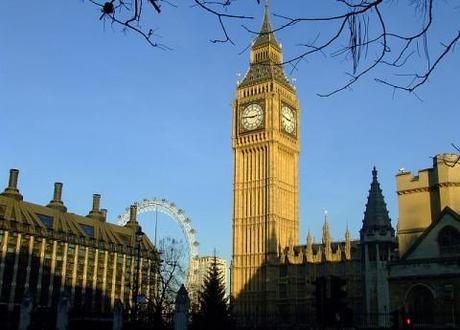
London: the setting for John Lanchester's new novel. Photocredit: T J Morris
Capital is John Lanchester’s new novel, a sprawling epic about life on the fictional Pepys Road, in London, just before the financial crisis of 2008. At the beginning of the book, a note with the message “We want what you have” drops through the letter boxes of each door on the street, once a family area, but now inhabited by mostly super rich bankers, as epitomised by Roger Yount, and his wife Arabella. Ageing Petunia Howe is the only inhabitant who was born on the street; her grandson Smitty is a graffiti artist. There’s also the newsagents on the corner, run by a Pakistani family; a Zimbabwean traffic warden, and a Polish builder. This was meant to be Lanchester’s “big, fat, London novel”; he began it in 2005, but put it aside to write Whoops!, a non-fiction account of the crisis. So how does this measure up? Critics are divided: some think it’s a panoramic work of genius; others think it’s disappointing.
Money corrupts. Antonia Senior on The Times loved it, mostly. It’s a “complex and gripping tale” about “greed and fear and money.” It’s not an attempt to analyze the crash, but it’s “more useful.” Lanchester “anatomises a culture that allowed the events described in Whooops! to happen.” He shows a tale of two Londons, where Yount can fret about his £1 million bonus not being enough, and where a traffic warden can be paid £12,000 a year. His middle-class Londoners are “jaded and venal”, whilst his immigrants are “largely noble and righteous.” Even his African footballer is “a lovely lad who likes football,” whilst the Islamist leanings of two Pakistanis are “youthful folly.” Lanchester may be a bit too “heavy-handed” with his message – “that money corrupts.” It’s a “slightly adolescent underlying theme.” Thankfully, Lanchester’s far “clever” to lapse.
Like Balzac. Keith Miller on The Daily Telegraph said Lanchester “tightens the screws, alternating hope and despair, flitting between protagonists neatly and dexterously.” Miller admired the book’s “reticence”, and compared the novelist not to Dickens, as is obvious, but to Balzac, as “like Balzac, Lanchester has the brains to relate the particular to the general.” Some of the books “lessons’, though, seem a shade “limiting”. But then Lanchester isn’t really doing any “analysis.” He even has “the courage to bore his readers a little.”
Hmmmm. At least it will sell. Theo Tait in The Guardian said Capital looks like “the book Lanchester was born to write.” Its opening is “strikingly original”, with the “real protagonists” being not theh characters but “the Victorian houses on Pepys Road.” The early chapters are “equally exciting.” But then “disappointment sets in.” Whilst novelists are always clamoured at to write “state of the nation” pieces, the problem is that usually they’re “not very good.” Good novels tend to work better “anchored in a distinctive individual sensibility.” The recent fashion for baggy social concept novels seems “unlikely to produce any great works of art.” It’s “depressing”, for instance, that “both Capital and Sebastian Faulks’s effort, A Week in December, feature such a similar cast of characters.” As did Amanda Craig’s Hearts and Minds. Unfortunately, his “characters never really transcend their origins.” “At best, they have substance without vitality.” In the end this is “an episodic, soapy story whose meaning always threatens to become clear, but never quite does.” But it will “probably sell well.”

